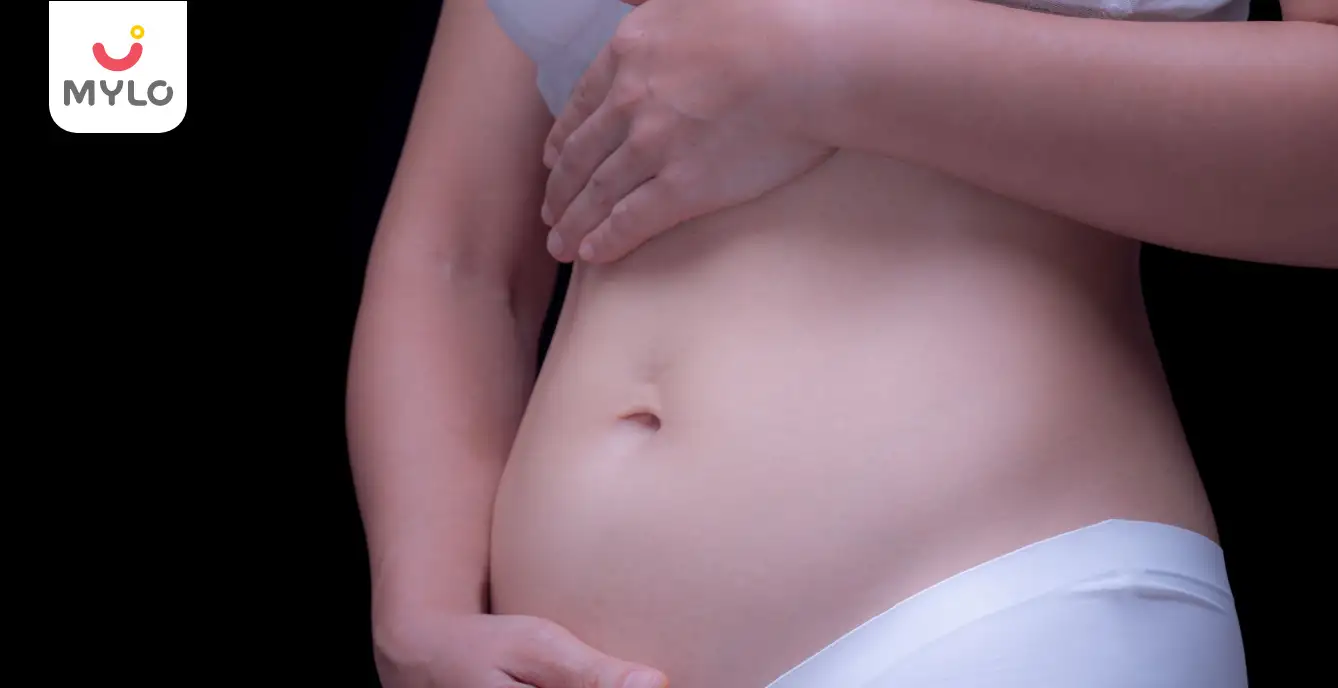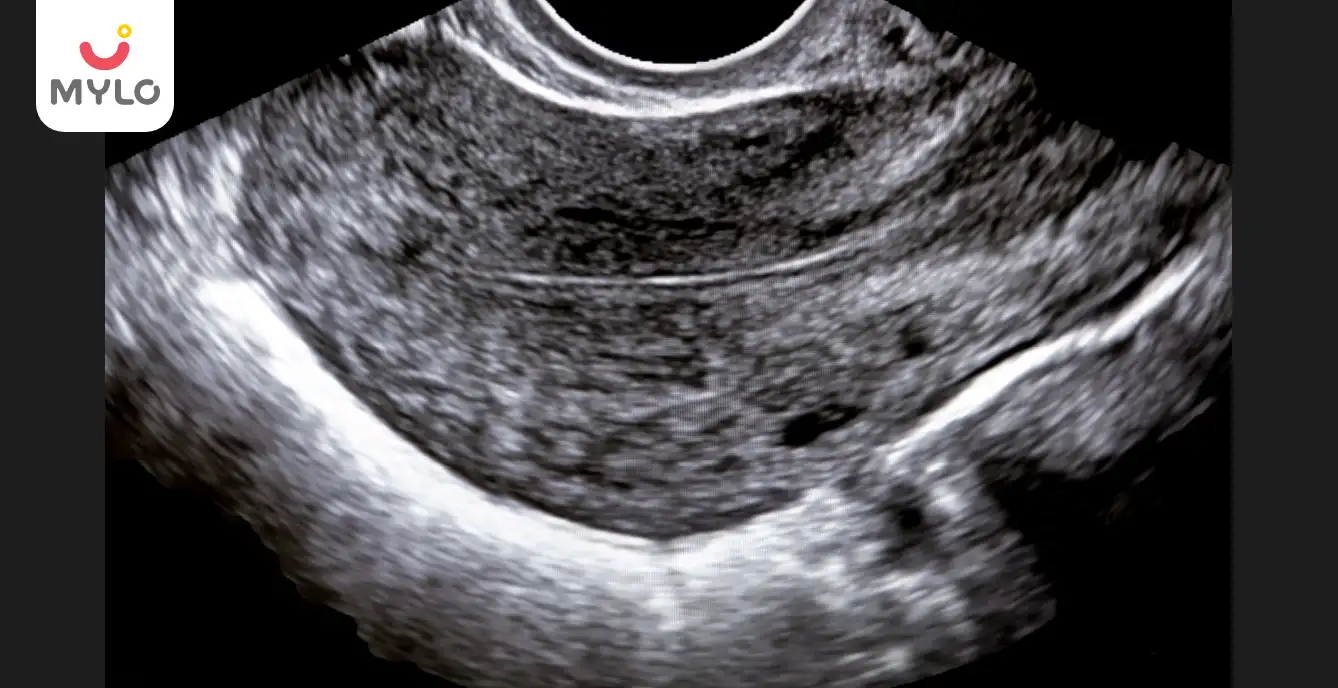- Home

- Second Child

- The Ultimate Guide to Planning for Second Baby
In this Article
Second Child
The Ultimate Guide to Planning for Second Baby
Updated on 24 October 2023
Welcoming a second child into your family is an extraordinary milestone, one filled with excitement, joy, and, of course, a fair share of challenges. Whether you're already a seasoned parent or embarking on this incredible journey for the first time, planning for second baby is a unique adventure that demands consideration and thorough preparation.
In this article, we will navigate planning a second pregnancy in different scenarios, understand the risks of second pregnancy after 35 and provide some second pregnancy tips to ensure you have a remarkable voyage ahead.
When should you plan a second pregnancy after C-section?
Recovery from a C-section can vary depending on various factors such as the woman's overall health, the type of incision made, and any complications that may have arisen during the surgery.
Generally, healthcare providers recommend waiting at least 18 to 24 months before attempting another pregnancy after a C-section. This allows sufficient time for the body to heal and reduces the risk of complications in the subsequent pregnancy.
While waiting for the recommended period is crucial, it is equally important for couples to consult with their healthcare provider for personalized advice. They may consider factors such as the woman's age, overall health, and any underlying medical conditions before giving the green light.
You may also like: Pregnancy at 30 and the risks involved
When can you start planning for second baby after normal delivery?
For women who have had a normal delivery, the timeline for planning a second pregnancy is typically different from those who have had a C-section. After a normal delivery, women usually have a shorter recovery period compared to C-sections.
In general, healthcare providers recommend waiting at least 12 to 18 months before planning for a second baby after a normal delivery. This timeframe allows the body to heal, replenish essential nutrients, and prepare for another pregnancy. It is important to note that each woman's body is unique, and consulting with a healthcare provider is crucial to ensure an appropriate timeline for planning a second pregnancy.
During the postpartum period, it is essential for women to focus on their own physical and emotional well-being. Adequate rest, a balanced diet, and regular exercise can help promote a healthy recovery and prepare the body for a subsequent pregnancy.
What is the best age to get pregnant second time?
Determining the best age to get pregnant for a second time is a personal decision that depends on various factors, including a woman's health, lifestyle, and individual circumstances. While there is no one-size-fits-all answer, healthcare providers generally recommend considering certain factors when planning for a second pregnancy.
One important consideration is a woman's age. Women who are in their early 30s may have a higher chance of conceiving and carrying a pregnancy to term compared to women in their late 30s or early 40s. However, it is important to note that fertility varies among individuals, and many women successfully conceive and have healthy pregnancies in their late 30s or early 40s.
Other factors to consider when determining the best age to get pregnant for a second time include overall health, financial stability, and emotional readiness. It is important for couples to have open and honest discussions about their goals, desires, and concerns regarding family planning.
Is it safe to start planning second baby after 35?
Planning for a second baby after the age of 35 is generally considered safe, but there are certain risks and considerations that couples should be aware of. It is important to understand the potential challenges associated with pregnancy at an advanced maternal age and make informed decisions.
One of the main concerns for women planning a second baby after 35 is the increased risk of certain pregnancy complications. These may include gestational diabetes, high blood pressure, and chromosomal abnormalities in the baby, such as Down syndrome. Additionally, the chance of having a multiple pregnancy, such as twins or triplets, also increases with age.
To mitigate these risks, it is crucial for women in their late 30s or beyond to prioritize preconception care. This may involve seeking regular medical check-ups, adopting a healthy lifestyle, and taking any necessary supplements or medications as advised by a healthcare provider. It is also recommended to discuss any concerns or questions with a healthcare provider.
What are the risks of a second pregnancy after 35?
Planning for second baby after the age of 35 can come with certain risks and considerations. While many women have successful pregnancies and healthy babies at this age, it is important to be aware of the potential challenges that may arise.
Here are seven risks to consider:
1. Increased risk of chromosomal abnormalities
The chance of having a baby with a chromosomal abnormality, such as Down syndrome, increases with maternal age.
2. Gestational diabetes
Women over 35 have a higher risk of developing gestational diabetes during pregnancy, which can affect both the mother and the baby.
3. High blood pressure and preeclampsia
Advanced maternal age is associated with a higher risk of developing high blood pressure and preeclampsia during pregnancy.
4. Preterm birth
Women over 35 have a slightly higher risk of giving birth prematurely, which can increase the likelihood of health complications for the baby.
5. Multiple pregnancy
The chance of having a multiple pregnancy, such as twins or triplets, increases with age, which can pose additional challenges and health risks.
6. Placenta previa
Women over 35 have a higher risk of developing placenta previa, where the placenta partially or completely covers the cervix, leading to potential complications during delivery.
Also read: Placenta: What is Placenta and How Does it Work?
7. Longer recovery time
Recovery from second pregnancy after c-section or even normal delivery may take longer for women over 35, as the body may require more time to heal.
While these risks exist, it is important to remember that many women in their late 30s and beyond have successful pregnancies and healthy babies. Regular prenatal care, a healthy lifestyle, and open communication with healthcare providers can help in planning second baby after 35 and mitigate these risks.
You may also like: Top 25 Motivating Pregnancy Quotes To Keep You Happy During Pregnancy
Second pregnancy tips you should keep in mind
Planning for a second pregnancy can be an exciting journey, but it may also come with its own set of challenges. Here are some tips to help couples navigate the process and have a healthy and fulfilling second pregnancy:
Consult with a healthcare provider
Before embarking on a second pregnancy journey, it is important to consult with a healthcare provider. They can provide personalized advice based on individual health history, address any concerns, and guide couples through the planning process.
1. Focus on preconception care
Preparing the body for a second pregnancy starts before conception. It is important to adopt a healthy lifestyle, eat a balanced diet, exercise regularly, and take any necessary supplements or medications as advised by a healthcare provider.
2. Manage existing health conditions
If either partner has any existing health conditions, such as diabetes or high blood pressure, it is important to work closely with healthcare providers to manage these conditions effectively before and during pregnancy.
3. Maintain a healthy weight
Achieving and maintaining a healthy weight before pregnancy can positively impact fertility and help reduce the risk of complications during pregnancy.
4. Address emotional readiness
Planning for a second baby involves not only physical readiness but also emotional readiness. It is important for couples to discuss their desires, concerns, and expectations regarding expanding their family and ensure they are on the same page.
5. Prepare the older child
If there is an older child in the family, it is important to prepare them for the arrival of a new sibling. Involve the older child in discussions, read books about becoming a big brother or sister, and address any concerns or questions they may have.
6. Practice self-care
During pregnancy, it is important for women to prioritize self-care and take time for themselves. This may involve activities such as prenatal yoga, meditation, or simply indulging in activities that bring joy and relaxation.
The Bottomline
Planning for second baby is an important decision that involves careful consideration of various factors. Whether after a C-section or a normal delivery, it is essential to consult with a healthcare provider to determine the appropriate timing for a second pregnancy. Factors such as age, overall health, and personal circumstances can influence the decision-making process. By prioritizing preconception care, maintaining a healthy lifestyle, and seeking regular medical check-ups, couples can minimize potential risks and increase the chances of a positive pregnancy experience.
References
1. Starbird E, Crawford K. (2019). Healthy Timing and Spacing of Pregnancy: Reducing Mortality Among Women and Their Children. Glob Health Sci Pract.
2. Teitler JO, Das D, Kruse L, Reichman NE. (2012). Prenatal care and subsequent birth intervals. Perspect Sex Reprod Health.



Written by
Anupama Chadha
Anupama Chadha, born and raised in Delhi is a content writer who has written extensively for industries such as HR, Healthcare, Finance, Retail and Tech.
Read MoreGet baby's diet chart, and growth tips

Related Articles
How Respiratory Syncytial Virus (RSV) Impacts Premature Babies Differently: What Every Parent Needs To Know
Adverbs: A Comprehensive Guide to help small children learn the usage of adverbs
Expand Your Child's Vocabulary with words that start with X: Easy, Positive, and Engaging Words, Animals, Countries, and Fruits
Unlocking Language Proficiency: The Ultimate Guide to Top 100 Sight Words for Kindergarten and Beyond
Related Questions
Hello frnds..still no pain...doctor said head fix nhi hua hai..bt vagina me pain hai aur back pain bhi... anyone having same issues??

Kon kon c chije aisi hai jo pregnancy mei gas acidity jalan karti hain... Koi btayega plz bcz mujhe aksar khane ke baad hi samagh aata hai ki is chij se gas acidity jalan ho gyi hai. Please share your knowledge

I am 13 week pregnancy. Anyone having Storione-xt tablet. It better to have morning or night ???

Hlo to be moms....i hv a query...in my 9.5 wk i feel body joint pain like in ankle, knee, wrist, shoulder, toes....pain intensity is high...i cnt sleep....what should i do pls help....cn i cosult my doc.

Influenza and boostrix injection kisiko laga hai kya 8 month pregnancy me and q lagta hai ye plz reply me

RECENTLY PUBLISHED ARTICLES
our most recent articles

Illnesses & Infections
The Ultimate Parent's Guide to Dealing with Boils in Babies

Baby Movements
2 Months Pregnant Belly: Understanding Your Belly and Baby's Transformation

Conception
The Significance of Trilaminar Endometrium in Fertility: What You Need to Know

Herbal Medicines
Kanchanar Guggulu: Your Ultimate Guide to a Healthy Lifestyle

First Trimester
First Trimester of Pregnancy

TV & OTT
Top 10 Comedy Movies on Hotstar to Make You Laugh Your Heart Out
- Stages of Pregnancy by Trimester
- Your Streaming Guide to the Best Web Series on Hotstar in Hindi
- Top Romantic Movies on Hotstar That'll Melt Your Heart
- When to Have Another Child: Timing and Tips
- Top 10 Benefits of Triphala: Discover the Hidden Health Secrets
- Ayurvedic Medicine for Irregular Periods: Discovering Ancient Remedies for Hormonal Harmony
- The Link Between Missed Period and White Discharge
- Vata Pitta Kapha: The Ultimate Guide to Discovering Your Ayurvedic Constitution
- Top 10 Romantic Web Series on Hotstar You Must Watch
- Back Pain During Period: Understanding the Causes and Solutions
- Pain After Sex: The Ultimate Guide to Understanding Causes and Finding Relief
- Coffee in Periods: Debunking the Myths and Understanding the Facts
- Postmenopausal Bleeding: Symptoms, Causes & Treatment
- Hormone Replacement Therapy (HRT) : Type, Side Effects & Treatment


AWARDS AND RECOGNITION
Mylo wins Forbes D2C Disruptor award
Mylo wins The Economic Times Promising Brands 2022
AS SEEN IN
















At Mylo, we help young parents raise happy and healthy families with our innovative new-age solutions:
- Mylo Care: Effective and science-backed personal care and wellness solutions for a joyful you.
- Mylo Baby: Science-backed, gentle and effective personal care & hygiene range for your little one.
- Mylo Community: Trusted and empathetic community of 10mn+ parents and experts.
Product Categories
baby carrier | baby soap | baby wipes | stretch marks cream | baby cream | baby shampoo | baby massage oil | baby hair oil | stretch marks oil | baby body wash | baby powder | baby lotion | diaper rash cream | newborn diapers | teether | baby kajal | baby diapers | cloth diapers |





